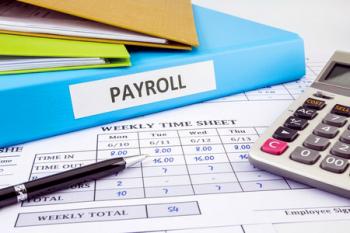Latest News
- Bay Area Employers: Shelter in Place Order Extended
(posted: Apr, 2020)SIP extended through May 31st. The SF Bay Area will continue to shelter in place through the end of May, even as other parts of the U.S. begin to reopen.
Latest Blog
- Bay Area Counties Issue New Order, SIP thru May
(posted: Apr, 2020)
The 6 counties are extending SIP through the end of May, but are also easing restrictions in a few key areas like construction.
Beware Pay Stub Rules
(posted: August 13th, 2015)

As an employer, you are probably aware that wage-and-hour law suits have been more common in the last several years. There are many different varieties of these suits, ranging from simple to very complex, but one type of claim, involving pay stub rules, is becoming especially popular.
Complying with the California Labor Code rules for pay stubs is not overly complex, but requires enough mandatory information that it is easily violated by simple oversight.
The California Labor Code requires that you provide employees with the following information along with their paycheck:
- gross wages earned
- total hours worked by the employee, unless they are in a salaried, exempt position
- the number of piece-rate units earned and any applicable piece rate, if employee is paid on a piece-rate basis
- all deductions
- net wages earned
- dates of the pay period
- the name of the employee
- only the last four digits of his or her Social Security number or an employee identification number other than a Social Security number
- employer's legal name and address
- all applicable hourly rates in effect during the pay period and the number of hours worked at each hourly rate.
This information can be provided in a document separate from the paycheck, but most employers include it on a detachable stub.
It is easy to violate these rules by simple lack of attention to detail. For example, it is not uncommon for pay stubs to be missing the full, legal name of the employer, or stubs may contain an employee's full Social Security number. Violations seem to be especially problematic for employers who process payroll checks internally, rather than through an external payroll vendor. But be aware that some payroll vendors' pay stubs aren't in compliance, either, so don't assume that you are safe because you're using an outside vendor.
The Cost of Violation
Violations of the pay stub rules entitle employees to recover:
- $50 for the first violation
- $100 per employee per violation in subsequent pay periods, not to exceed a combined penalty of $4,000.
Employees are also entitled to recover the legal fees and costs they incur in pursuing such claims, and that can add up quickly.
Should you violate the employee's right to copy or inspect their payroll records within 21 days of request:
- You'll be subject to a $750 penalty.
Note that a request for copies of payroll records is often a warning that a claim for violation is coming.
Defending against claims of violation of pay stub rules is difficult at best, so employees are unlikely to compromise in settling claims. This is another reason to make sure you are avoiding liability in the first place by complying with the law.
Steps Employers Should Take Now
Review Paycheck Documentation.
Whether your company processes paychecks internally or uses an outside vendor, review the documentation provided to employees with each paycheck and be sure that all of the information in the list we provided, above, is either printed on the paystub or is provided in a separate document that accompanies the check.
What to do When Documentation is Not Compliant.
Should you find that your documentation is not compliant, you will want to create a plan to bring you into compliance. This is something your employement lawyer, or HR Solutions Partners, can help with.
Handling Requests to Inspect Records.
Respond promptly to requests for inspection or copying of payroll records. Whether the request comes from a current or former employee, your best practice is to gather all of the documents needed and provide them without delay. You may also want to speak with us, or with your employment lawyer to assure that you are handing over the right documents, as some records don't satisfy the requirements. We can also help you identify any potential violations that may be evident from the records.
If you have any questions about California's pay stub rules please contact us.



